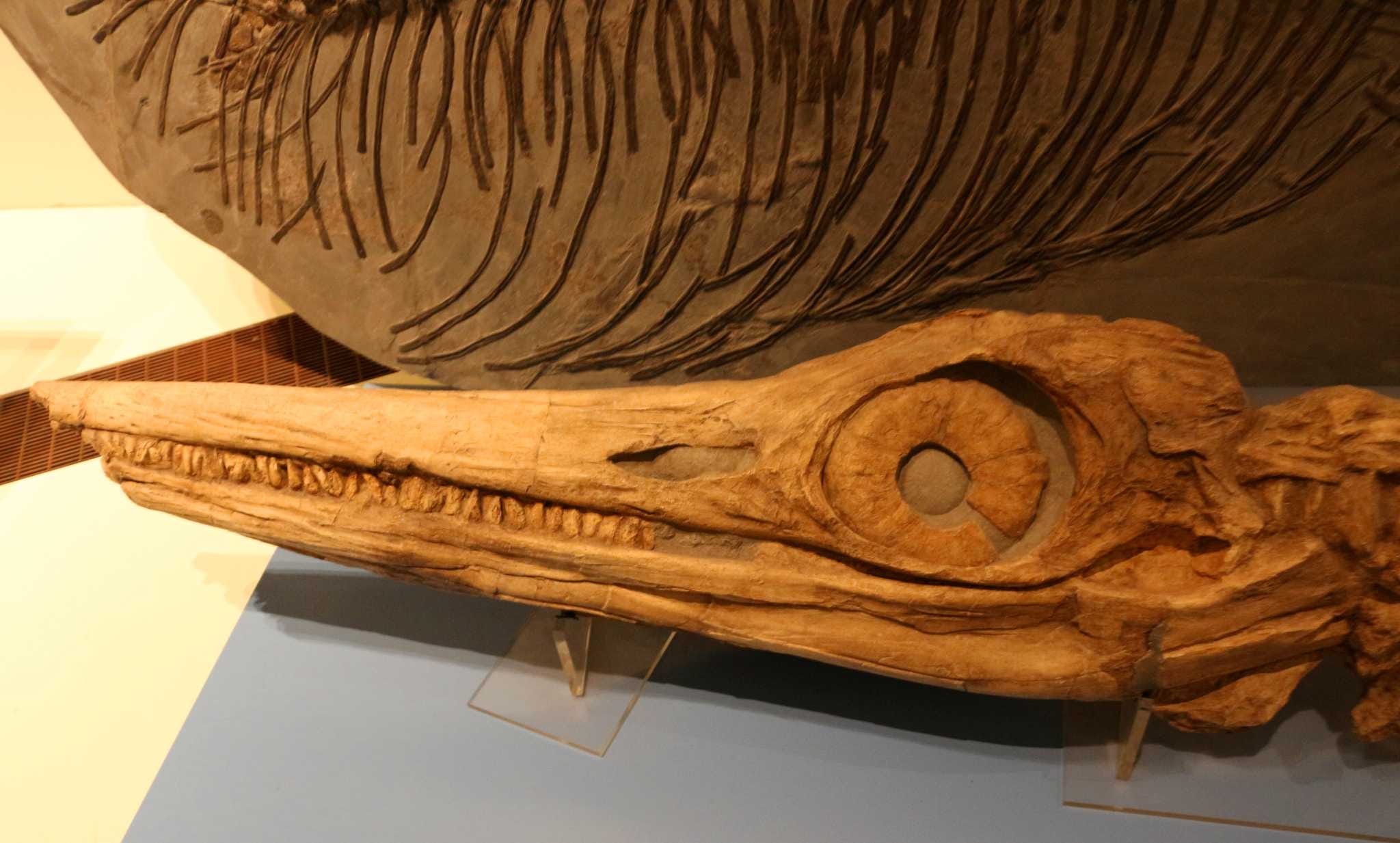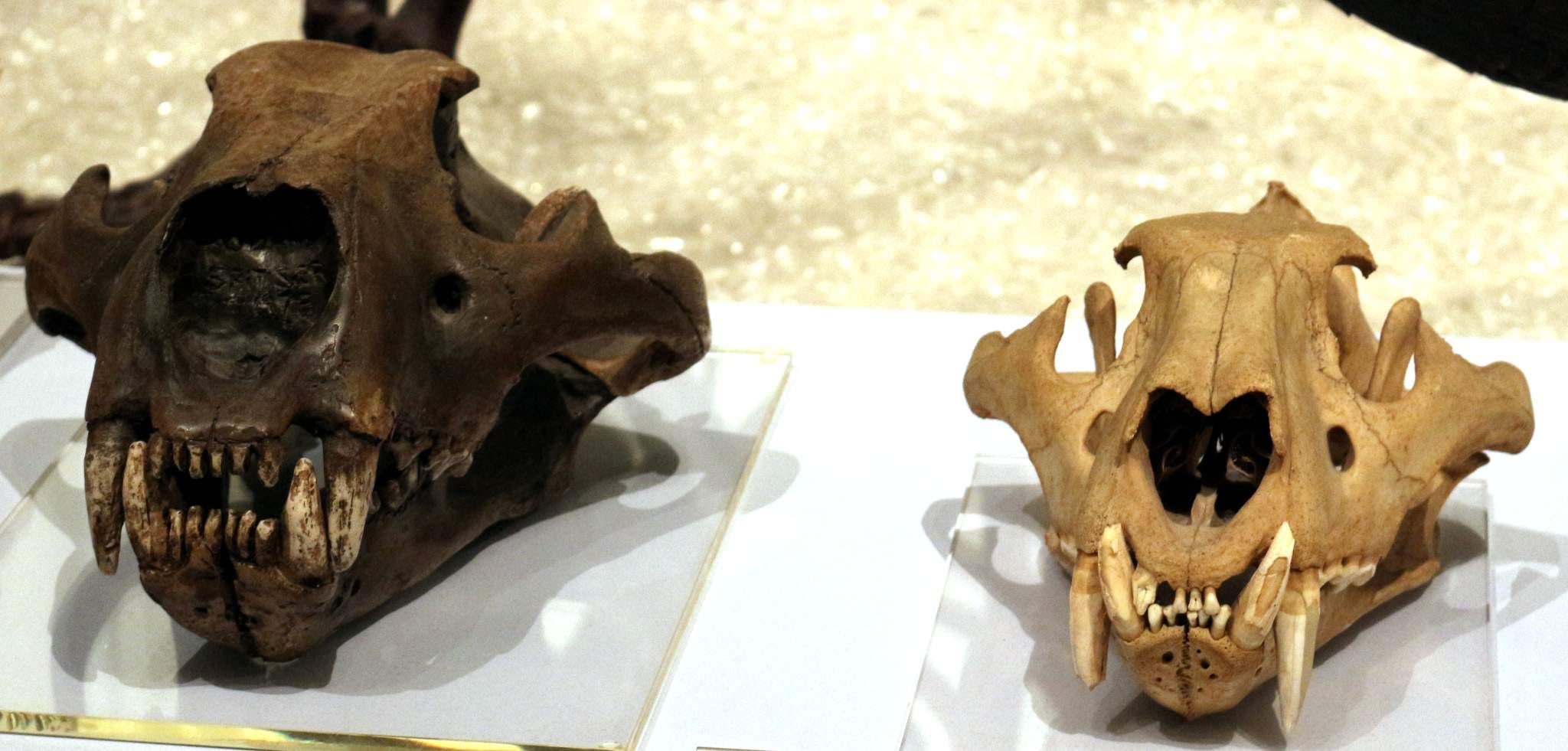Nope - Bite definitely worse
Also not to be smiled-at (top photo)
Crocs and alligators are among very few really obvious dinosaurs still thriving on earth - and yet my recent museum visit proved that their ancestors were considerably more fearsome still.
Who was it who first said "Never smile at a crocodile?" I seem also to have a few different singing-versions of it stuck in my head, with the approximate fidelity of a honky old wind-up victrola - no matter, it was likely quite sensible advice, for which the frequencies above five kilohertz have long been proven entirely superfluous - (AM is fine for emergencies, if not sonic ecstasy).
Giantism and dentition
A lot of us got variations of this lecture from a dentist when young, as a completely unsatisfactory and not-at-all helpful (but nevertheless interesting) justification for the painful pulling of teeth that we rather liked. "Back in ancient times, jaws were much bigger, and could accommodate these teeth more easily - but nowadays, thanks to much smaller skulls with the same number of teeth, crowding is very common."
The contrast really shows up between the ancient cat and modern lion skulls, seen here. I'm guessing one would have a very slightly better chance of surviving the modern, than the ancient - but you really have to feel for the poor buggers, for their lack of a properly thought-out dental plan. Incidentally, I'm not trying to incite against lions (who I adore) at all - but the ancient one put me in mind of one of Velikovsky's more interesting theories.
He was the 'crazy' scientist who said the poles used to be warm, and the earth's magnetic field has changed over the millennia. All considered total nonsense until, just as he predicted, oil was discovered all over the polar regions (north and south), from the tropical jungles he'd said had been there long ago.
His still far-out theory about cats is interesting - and I feel as if he probably hooked into psychological developments at the right moment for his speculations to take a lovely and resonant mythic character.
He thought that at one point in far-ancient times, there was a specialized hunting-cat that mostly liked to eat humans. He went further, too - and suggested that the fear of this long-extinct species is so basic to us, that it is the 'actual' evolved template of the bogeyman we eternally re-invent in almost every culture. The thing that goes bump in the night - that very well might carry us away and eat us!
And then there's this - he also wondered if this was the birth of neurosis itself - the very first traumatic fear to take on it's own irrational and happiness-destroying character - and then be passed down that way, much like culture-transmission, from generation to generation. The original predator bogeyman, rippling the waters of the oceanic pond of eden - getting us all booted-out of innocent happiness forever, by means of a genuinely unwholesome quality of awareness.
The whole thing relies heavily on the mythic and shared, and also on the idea of a golden age (which we moderns might sometimes seem to believe-in, with our mania for marketed-nostalgia, and yet can't ever actually sincerely subscribe-to, thanks to our credo of universal-relativist cynicism). ;o)
All the same, we didn't get clever for no reason at all - and even if we did develop our big brains for redundancy and rewirability (plasticity) primarily so that we could cope with the overheating of our once natural savannah habitat - wouldn't that suggest that some cats would definitely have seen tempting 'herds' of us watering. Why not specialize? So many things were tried.
Prehistoric smart-ass
Who can tell - the house-cat may even represent the remnant of an incredibly ancient victory in a long frightening conflict that took all of us millennia to win - much the way that a smile was once the baring of incisors (fangs) for establishment of dominance and pack-order - and is now a backhanded prehistoric joke. "What - moi bite vous? Ha-ha - of course not. Peekaboo!"
You can't tell me that this ancient Pterodactyl skull isn't immediately translated as laughing at us - an effect entirely due to our great natural ability to fill-in the blanks to satisfy aesthetic cravings (yes, cuteness is a definite craving, if not need).
Then again, if you measure by wingspan, maybe cute isn't quite the word.
Santa being done for the year, things that go bump on the roof are also officially scary once again - particularly those that could carry-away your chimney very casually, just to bulk-up their nest a little!
¯\_(ツ)_/¯





